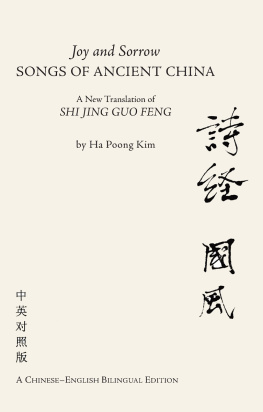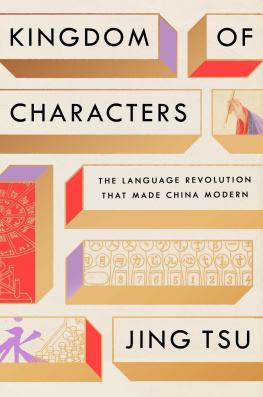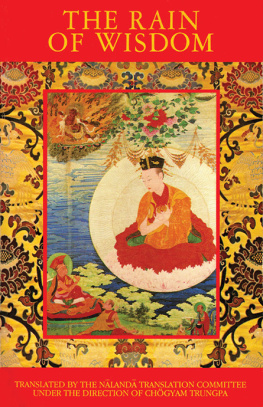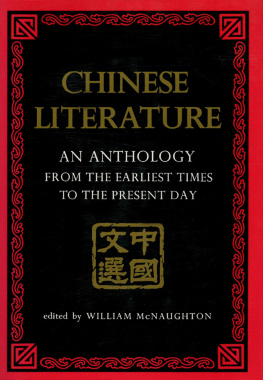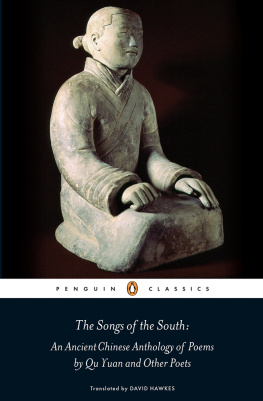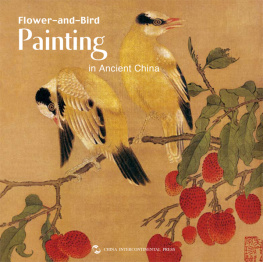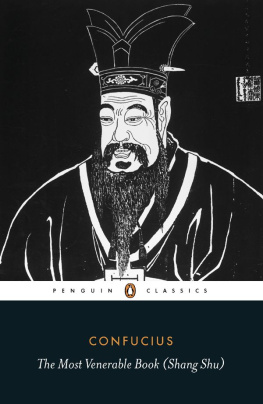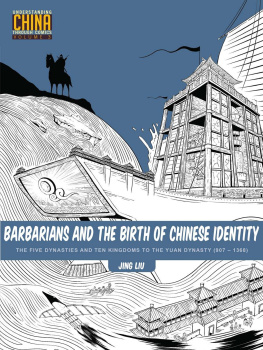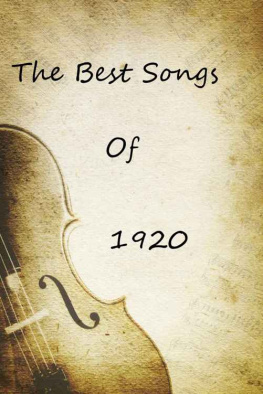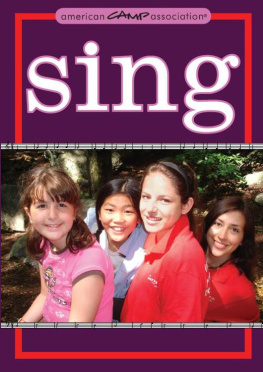The Shi Jing is the oldest anthology of Chinese songs. It contains 305 songs of ancient China, composed in the 12th to 7th century BCE . The collection is divided into four parts. The present work is a translation of its first part, namely Guo Feng, which translates as songs of states within the Zhou kingdom (1122255 BCE ). The Guo Feng songs were mostly sung by the common people of the kingdom. In this respect, they are unlike the songs in the other three parts, which are generally dynastic songs of the Zhou court. The songs included in this translation predate Confucius, many by several centuries. Accordingly, through them one may hear the spontaneous voices of pre-Confucian China.
The text of the Shi Jing has come down to us at the present time in familiar Chinese characters. But their usage is so ancient that for centuries even Chinese readers have had to rely on a few standard commentaries, which all gave Confucian, moralistic readings of the songs, even of those that are unmistakably simple love songs. Ha Poong Kims translation has incorporated the results of some recent Japanese studies which question the traditional, Confucian approach to the text, thereby recovering the original meaning of many songs in the Guo Feng. It is hoped that this ChineseEnglish Bilingual Edition makes the voices of joys and sorrows of this ancient land audible to a modern readership, not only in the West but also in China as well.
Cover calligraphy: Front cover on right, Shi Jing Guo Feng in Chinese; and bottom left, ChineseEnglish Bilingual Edition; the brushwork is by the translator. Back coverImage of character Shi (Song/Poem) in an old Chinese script.
Ha Poong Kim, a native of Korea, taught philosophy, both Western and Eastern, at Eastern Illinois University for over twenty years. His most recent works (after retirement) include Reading Lao Tzu: A Companion to the Tao Te Ching, with a New Translation, and Oh, Let Me Return: Nature Poems of China (in Korean).
Copyright Ha Poong Kim 2016.
Published in the Sussex Academic e-Library, 2016.
SUSSEX ACADEMIC PRESS
PO Box 139
Eastbourne BN24 9BP, UK
and simultaneously in the United States of America and Canada
All rights reserved. Except for the quotation of short passages for the purposes of criticism and review, no part of this publication may be reproduced, stored in a retrieval system or transmitted in any form or by any means, electronic, mechanical, photocopying, recording or otherwise, without the prior permission of the publisher.
British Library Cataloguing in Publication Data
A CIP catalogue record for this book is available from the British Library.
Library of Congress Cataloging-in-Publication Data
Applied for.
ISBN 978-1-84519-792-6 (pbk)
ISBN 978-1-78284-298-9 (e-pub)
ISBN 978-1-78284-299-6 (e-mobi)
ISBN 978-1-78284-300-9 (e-pdf)
This e-book text has been prepared for electronic viewing. Some features, including tables and figures, might not display as in the print version, due to electronic conversion limitations and/or copyright strictures.
Contents
Preface
The Shi Jing is the oldest anthology of Chinese songs. It contains 305 songs of ancient China, the 12th7th century BCE . The collection is divided into four parts: Guo Feng (160 songs), Xiao Ya (74 songs), Da Ya (31 songs), and Song (40 songs). The present work is a translation of the first of these four parts, namely Guo Feng, which means songs of various states within the Zhou kingdom (1122255 BCE ). The word feng by itself refers to the local custom of a particular region, so that most of the songs in this part may be regarded as folksongs or ballads, sung by the common people of a given state. Unlike these songs, those in the other three parts are generally believed to have been composed for various occasions of celebration and worship (such as royal banquets and rites of sacrifice), so that they typically sing the great achievements of the forefathers of the Zhou house, invoke blessings for the king and his descendants, and at times give even admonitions for his future successors. In this respect, they are clearly dynastic songs, which often refer to the dynastic legends.
The songs included in this translation, on the other hand, have mostly a more spontaneous origin: they were born wild, so to speak. They were born wild in that northeastern part of China along the Yellow River where the present-day Xian and Loyang region would occupy the central part. That is, they were the spontaneous voices of the ancient people of China who lived even before Confucius was born. I note this fact especially because the Chinese civilization as we know it today is fundamentally Confucian. In this sense, one may say that these voices are the songs of joy and sorrow sung by those Chinese people whose world was very different from the Confucian universe, with which we tend to identify Chinese civilization.
This is of course not to suggest that the rich history of Chinese poetry that was to come had little to do with the Shi Jing. Historically, indeed, this anthology was to become one of the two ancestors of the poetic tradition of China, along with its later counterpart Chu Ci, which contains the poems by several poets from the South, most importantly the long poems by Qu Yuan (340278 BCE ), the first known poet of China.
To be sure, the text of the Shi Jing comes down to us in our familiar Chinese characters. But few, even Chinese people of today, can read it without commentaries, especially the songs in Guo Feng. For what one sees in the text are merely the written versions of the songs, which were originally sung or orally cited in ancient Chinese, some possibly more than four centuries before Confucius (551479 BCE ). In fact, the language of the Shi Jing was considered old Chinese (gu wen) already during the Han period (206 BCE 25 CE ), when the first commentaries on this anthology appeared. Perhaps one may explain their appearance in view of the difficulty of reading the text. But one may recognize also a more fundamental reason for this.
It was during the reign of Wu-di (Emperor Wu) (14087 BCE ) of the Han dynasty that there appeared the so-called three schools of Shi studies, each giving its own interpretation of the Shi Jing. These schools are believed to have produced each their own commentaries on this classic, though no text has survived to tell us of their interpretations. Importantly, Wu-di was the first ruler of China who made Confucianism the state ideology, favoring it over all the other philosophical schools. With the ascendance of Confucianism came the growing importance of the studies of the Confucian canon, which includes the Shi Jing. Here we can see the external circumstance in which the three Shi schools came into existencenamely, the political circumstance in which the Confucian commentaries on this difficult text began to appear, the condition never to abate for nearly two millennia.
The text of the Shi Jing in the present form is often called Mao Shi, because it was the text contained in a commentary written by a certain Mao Hengas tree, flower, bird, mountain, river, season, and the like. One finds typically such a beginning in later Chinese poems.
About three centuries after the appearance of the Mao Shi, the great Confucian scholar Zheng Xuan (127200), of Later Han, added his own comments to Maos, and this new version quickly established itself as the most authoritative commentary on the Shi Jing.
Next page
